Overview
One of the most exciting methods to reach people all across the world is through podcasting. It’s an affordable platform that lets you share your knowledge, experiences, and thoughts without breaking the bank.
Although many people think that beginning a podcast costs money, you can actually get started for free. You may start your own podcast right now if you take the proper strategy. You can make it happen for free with the help of this helpful advice.
The Essentials of Starting a Podcast
It’s easier to start a podcast than most people realize. Decide what you want to share with the world first; it could be personal anecdotes, professional guidance, or thoughts on a certain subject.
After you have a concept, concentrate on producing material that appeals to the audience. The finest aspect? The method is completely accessible and cost-free thanks to resources like free audio editing tools and hosting platforms.
I can speak from experience when I say that clarity is essential. Whether it’s panel discussions, interviews, or solo lectures, choose your format and follow it. Maintaining consistency keeps your audience interested and helps you gain their trust.
Lastly, avoid overanalyzing the technology. Great sound quality can be produced by inexpensive USB mics and even your smartphone, demonstrating that podcasting doesn’t have to be expensive to begin.
1. Define Your Podcast Idea
Every successful podcast starts with a strong idea that draws listeners in and piques their curiosity. Start by picking a subject that appeals to a wide range of people while still feeling intimate. Consider what will distinguish it from other businesses in the similar niche.
For instance, I tried to properly adapt my content to my listeners’ interests when I first started my podcast by determining what they cared about most. It’s time to sketch out the framework when you’ve perfected your concept.
Consider your episode concepts, potential guest appearances, and the tone that best captures your individuality. Maintain a constant tone throughout, as this fosters trust and encourages repeat business. Even if you’re just starting out, having a clear plan guarantees that your podcast seems polished and professional.

Crafting an Engaging Experience:
A superb podcast connects as much as it informs. Every episode should focus on something significant, whether you’re interviewing a possible guest or delving deeply into a certain subject. When making plans, concentrate on creating a program that strikes a mix between imaginative storytelling and useful advice.
This method helps you create a long-term content strategy in addition to making your podcast more interesting. Lastly, keep in mind that clarity is essential. Making sure your podcast is easy to follow will make a lasting impression, both in terms of how you talk and how you deliver your views.
Additionally, although it may seem intimidating to start for nothing, accepting the challenge can inspire you to come up with innovative ideas for your concept and production approach.
2. Gather Basic Equipment
To begin your podcasting career, you don’t need some fancy equipment. I began by using a basic recording device, such as my smartphone, which was excellent for getting crisp audio. A desktop computer or laptop with built-in microphones can also be used if you’d like.
Although they are not required, headphones are quite useful for audio monitoring, which helps you identify any possible problems before posting. You may want to think about updates as you develop. A pop filter or a USB microphone can improve sound quality and give your podcast a more polished appearance.
A simple webcam or even the camera on your phone can work well for individuals who are interested in video podcasts. These easy setups make podcasting accessible and doable by enabling you to produce excellent content without going over budget.
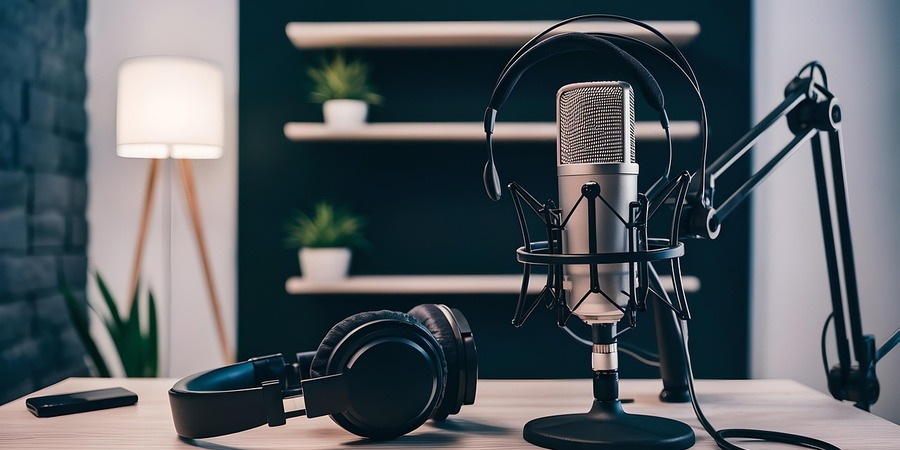
3. Choose Free Recording and Editing Tools
Free software is essential for launching a podcast on a tight budget. A built-in recorder on recording platforms such as Anchor facilitates the rapid production of your first episode. For those seeking other options, programs like GarageBand and Audacity are excellent for producing episodes of high quality without going over budget.
These programs are simple to use, and you may improve your production skills with a little practice. Editing is the next step after audio recording. To make your podcast stand out, you can use the editing tools offered to remove mistakes, clean up the audio, and even add sound effects.
You will have complete control over the sound and quality of your podcast once you have mastered these platforms, which can be accomplished with the help of numerous online tutorials. To get a polished end result, don’t be scared to experiment with various tools and methods.

4. Create a Recording Space
Making the ideal recording environment is crucial to guaranteeing high-quality audio. The first step is to select a comfortable and quiet space, ideally one with little background noise. I’ve discovered that even small adjustments can have a big impact.
For instance, adding cozy furniture like blankets and pillows will assist cut down on echo and improve the quality of your recordings. Another piece of advice is to place your microphone carefully. In addition to improving your clarity, holding it close to your mouth guarantees that your voice is heard clearly.
These minor nuances are what distinguish a professional-sounding podcast from one that sounds aloof or muted. You’ll be astounded at how much you can enhance the sound quality without spending a fortune on gear if you set it up correctly.
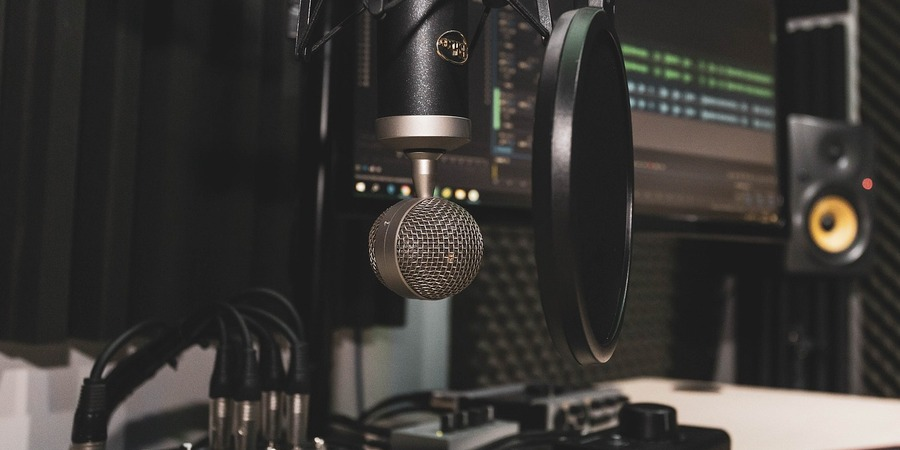
5. Record Your First Episode
The magic happens during the recording phase of podcast creation. To assist you stay focused, it’s important to keep things straightforward and follow a plan or script. This guarantees that your thoughts are coherent and that you stay on course. Make sure to test your equipment before you hit record.
To prevent any technical issues, you should confirm that everything is configured properly. Do not overburden yourself with the need to get things properly the first time. Accept the process and realize that your first impression doesn’t need to be flawless.
Actually, it’s possible that your best moments occur when you’re just being yourself and allowing the discussion to flow. Your confidence will grow as you record more, and every episode will seem more professional than the last.
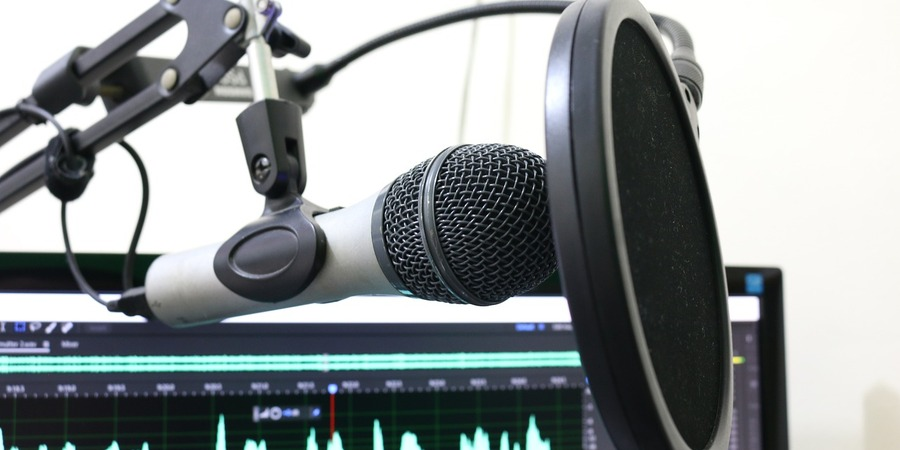
6. Edit Your Episode
Editing comes next after you’ve recorded your episode. Here, your unprocessed audio is turned into polished material. Thankfully, there are free solutions available to assist you in cleaning up your recordings, so you don’t need to purchase costly software to complete the task.
For example, you can eliminate background noise and correct any errors that may have occurred throughout the recording process. To give your podcast a more polished feel, you can also include music for the intro and outro. Segment transitions can help your episode run more smoothly and feel more cohesive.
Maintaining a professional and well-balanced vibe throughout the episode requires maintaining constant audio levels. These minor adjustments can significantly improve the caliber of your podcast and position you for success.
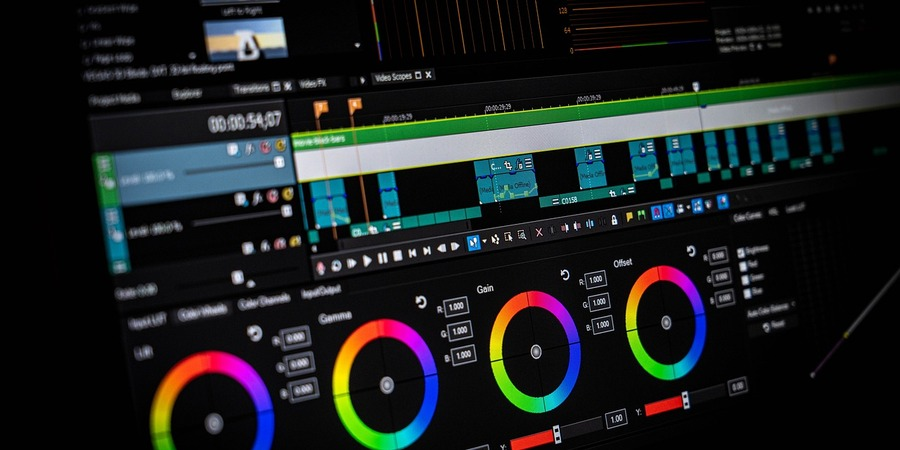
7. Use a Free Podcast Hosting Platform
You’ll need a platform to store and share your episodes when it comes to podcast sharing. Thankfully, there are well-liked free alternatives. For instance, Anchor is an easy-to-use platform that easily connects with Spotify, making it simple to reach a wider audience.
Podbean provides basic hosting together with useful metrics to monitor the growth of your podcast. Another excellent choice for those just starting out is Buzzsprout, which has a free tier with restricted storage. Despite having limited storage, it nevertheless offers excellent functionality for novices.
Your material can reach listeners on various platforms thanks to the assistance of all of these services, which also assist you in distributing your podcast to well-known directories like Apple Podcasts and Google Podcasts.
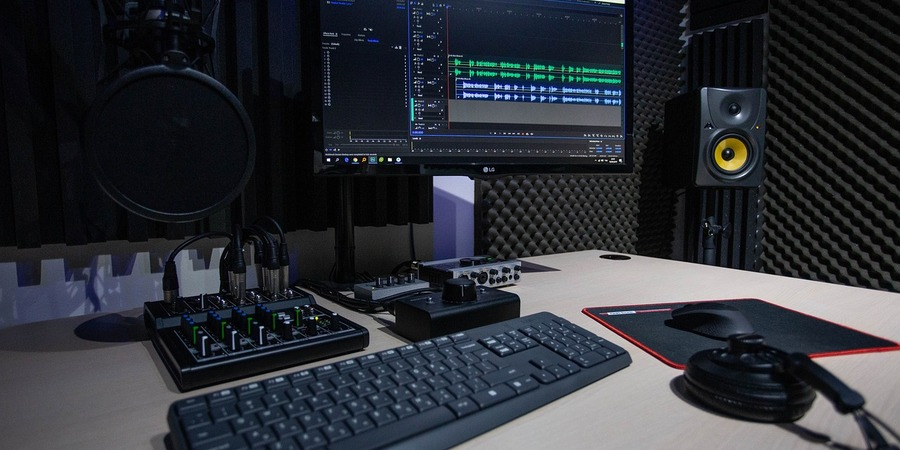
8. Monetize When Ready
The moment to think about monetization alternatives comes as your podcast grows and attracts more listeners. Sponsorships and advertisements are two common ways to get money. You can generate income while giving your audience pertinent material by collaborating with brands.
Another choice is listener donations, where listeners can actively support your podcast through websites like Patreon. You might also want to think about providing premium material when you’ve developed a devoted following. This may involve charging for exclusive episodes, which would benefit your listeners while also making money.
